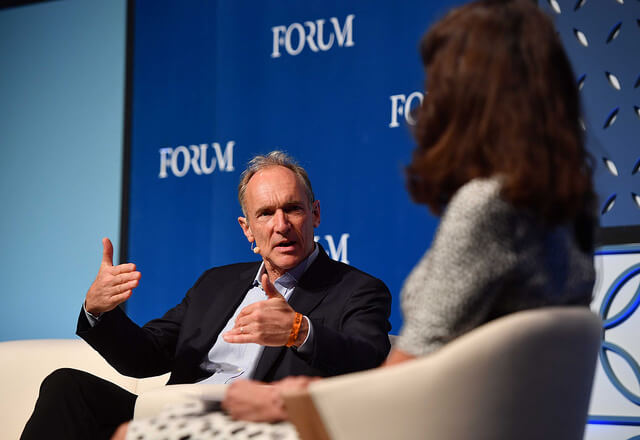50+ organisations, including companies, governments, and citizens’ groups have joined a collaborative effort to build a ‘Contract for the Web’.
The inventor of the World Wide Web, Sir Tim Berners-Lee, has launched a plan to build a “Contract for the Web” as part of a global campaign to defend a free and open web for everyone. Speaking on the opening night of the Web Summit technology conference in Lisbon, Berners-Lee unveiled a set of principles that define responsibilities that governments, companies and citizens each have to create a better web.
The contract process and its starting principles, published by Berners-Lee’s World Wide Web Foundation, have received high-level backing from over 50 organisations.
The principles have been launched in tandem with a new report, The Case For The Web, which examines the state of the web today and argues for urgent action. Speaking from the Web Summit, Berners-Lee said: “The web is at a crucial point. More than half the world’s population remains offline, and the rate of new people getting connected is slowing. Those of us who are online are seeing our rights and freedoms threatened. We need a new Contract for the Web, with clear and tough responsibilities for those who have the power to make it better. I hope more people will join us to build the web we want.”
Berners-Lee called for people to support the principles and get involved in a process to build these into a full Contract for the Web that will be published in May 2019 — the “50/50 moment” when more than half the world’s population will be online. The contract will be promoted through a public mobilisation campaign called #ForTheWeb.

The push comes amid a growing awareness of the risks posed by digital technologies. The Case for the Web report outlines the urgent action needed to tackle these risks, covering issues including hate speech, data privacy, political manipulation and the centralisation of power online among a small group of companies. The report reveals that more than 1.5 billion people live in countries with no comprehensive law on personal data protection, leaving them particularly vulnerable to increasingly common incidents involving breaches of personal data.
Adrian Lovett, President & CEO of the World Wide Web Foundation said: “For three decades we’ve seen the tremendous good that the web can deliver. As we work to expand its benefits to everyone, we need to make sure the web serves humanity, not the other way round. This can’t be accomplished by any one company or country alone. It’ll take all of us — debating, negotiating and collaborating to shape a better web.”
The ambition to build a Contract for the Web recognises that the challenges facing the web demand commitments from a range of actors, from the companies building web technologies to the policymakers defining laws and regulations, and the billions of people using the web every day.
The Contract Principles are available to sign at fortheweb.webfoundation.org.



